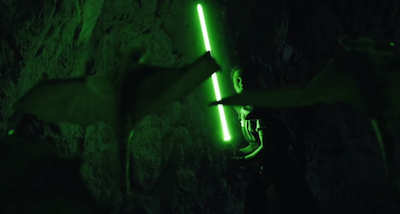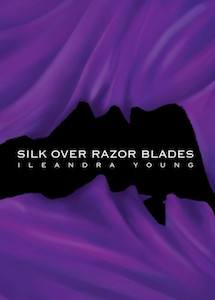What is it with women and moving vehicles?
So, Saudi Arabia to allow women to drive in major milestone for country. Excellent news, of course, but I was amused to read: “In October 2013, shortly after a prominent cleric claimed that medical studies showed driving damaged a woman’s ovaries, 60 women took part in a protest, driving in spite of warnings from the authorities.”
Amused because last year I spent a couple of weeks hunting for the origin of the quote: “Doctors warned that the unusual physical exertion, combined with the perilous lack of corsetry, would damage the feminine organs of matrimonial necessity and shake them loose…” This quote, however, is from 1896 and relates to women riding bicycles (see summary).
Plus ça change…
Gravity
I had the opportunity recently to watch Gravity in which Sandra Bullock must somehow get back to Earth from Low Earth Orbit amidst a rain of space debris that destroys the space shuttle, the Hubble space telescope and the International Space Station; the planned Chinese space station is destroyed also, although mainly because it’s well below its planned altitude (for unexplained reasons) and starts burning up in the Earth’s atmosphere.
I love the film for its visuals and the detail of space technology, but I found the premise of the story, and the periodic showers of space debris, very confusing… So I decided to write a computer programme – a simple one – to simulate the destruction of a satellite and the consequent space debris. I have uploaded the video and you can see it here on Youtube.

Simulation of a satellite explosion in a Low Earth Orbit and the resulting space debris, inspired by the film Gravity.
Still, it would have been a very different story if physics had its way:
Howards’ Ends
Last week I watched The Other Boleyn Girl on Netflix, with Natalie Portman as Anne Boleyn and Scarlett Johansson as her sister Mary; the film is based on the book by Philippa Gregory. While there was much to enjoy in the re-creation of Tudor London and court life, the story took major liberties with historical fact. (For a detailed discussion of the book’s and the film’s deviation from and attitude towards historical accuracy, see Fact, Fiction, and Philippa Gregory.)
While I found the historical inaccuracies generally confusing, what really horrified me was the characterisation of Anne Boleyn as a jealous sister and vile seductress, willing to tear England apart for the sake of ambition. Descending into madness as she fails to produce a male heir and the king neglects her in his pursuit of other beautiful young women, she resorts even to incest, sleeping with her brother.
Such an utterly villanous and contemptable mischaracterisation has surely not been seen since Salieri’s conflicted hatred of Mozart in Amadeus – and there, at least, there was no pretence that this was honest. Amadeus was a film explicitly about mediocrity, and invited the viewer to delight in the fun and the music and the spectacle of it all.
But all The Other Boleyn Girl does is reiterate the damnable fiction spun by the villains who destroyed Anne Boleyn. Shame on you, Philippa Gregory, for dressing this up as feminist.
Thomas Howard, the 3rd Duke of Norfolk, was Anne Boleyn’s uncle, and uncle also to Katherine Howard, the fifth wife of Henry VIII. In the litany of wives (divorced, beheaded, died, divorced, beheaded, survived), Anne and Katherine were the two who lost their heads. Although Anne is mostly viewed with sympathy these days, and as undeserving of her fate, Katherine is seen as the foolish girl who tricked the king into believing her a virgin and who cheated on him later.
Even Lucy Worsley portrays her as the seductress, groomed and prepared by her uncle the Duke, and concludes with very little room for doubt that there was an affair with Thomas Culpeper. However, she does also discuss briefly Katherine’s early life and what would, to our modern eyes, be regarded as child sexual abuse.
Josephine Wilkinson’s Katherine Howard: The tragic story of Henry VIII’s fifth queen takes a much more detailed look at this, revealing just how betrayed Katherine was by those with a duty of care, and how fragile her happiness must have felt to her, surrounded as she was by those who knew the truth of her childhood.
Because she was happy, and she made the king happy, and it really doesn’t make sense that she would jeopardise this.
Lilith, contd
After her expulsion from Eden, Lilith discovers the joys of mischief.
Sexbots
A trio of recent posts from IFL Science:
- Arlan Robotics has created “an incredibly realistic droid that when assembled looks, smells, feels and moves like a real human” (Meet The World’s First Adult ‘Service’ Droid). [Warning: Watching the video will make you want to hurl your computer/device out of the nearest window.]
- Please remember: There’s nothing wrong with sexbots. There may be a lot wrong with the people who (ab)use them: Sex Robot Has Traumatic Experience At Technology Festival And Is Forced To Retire Many Body Parts. The article also talks about the use of sexbots in brothels: “Fanny became the most talked about sex robot in Kontakthof, a brothel in Vienna. She was spoken about so often that she became more popular than the actual sex workers.”
- Far more exciting, however, are the scientific advancements: Scientists Create Soft And Super-Strong Synthetic Muscles For Lifelike Robots. Now, this has nothing specifically to do with sexbots, but, hey, who am I kidding. Soon we’ll be able to design and 3D-print genitals to order…
In Jennifer Pelland’s Machine, the novel’s initially human protagonist, Celia, becomes a machine for medical reasons, but her wife refuses to accept her as one. Celia copes with the pain of this rejection by trying to become more of a machine, in a quest to transform away all remnants of her humanity. (This novel is not about sexbots, but touches on themes of machine sex and also machine sex work.)
Posts






 The Enchanted Forest
The Enchanted Forest












